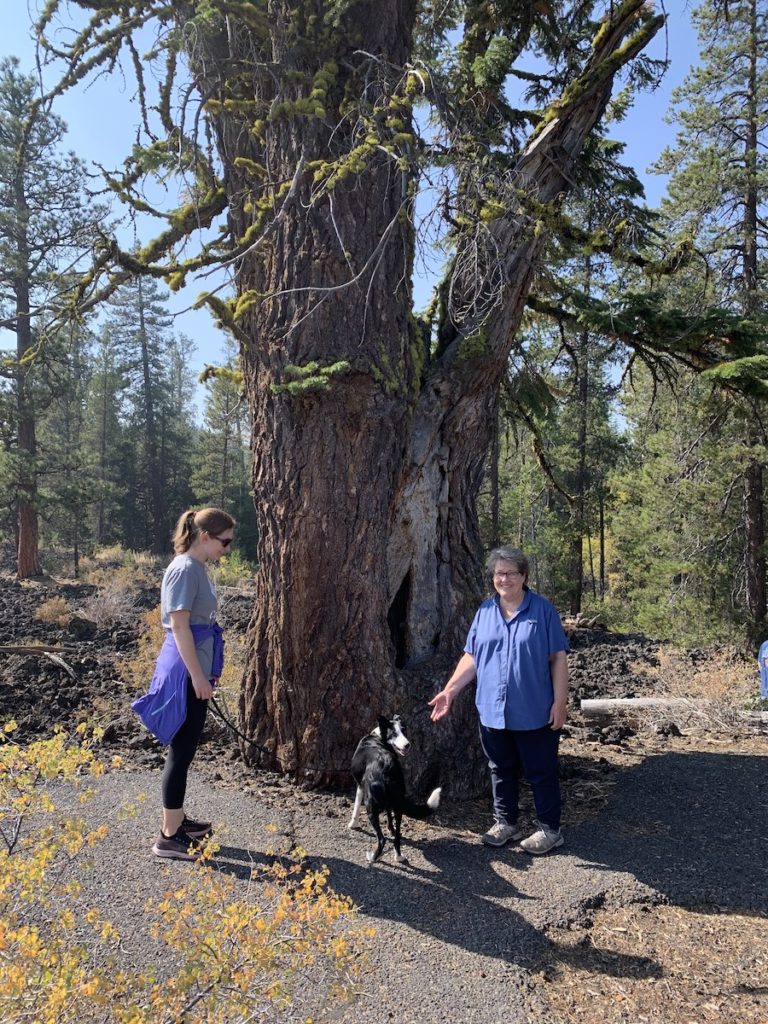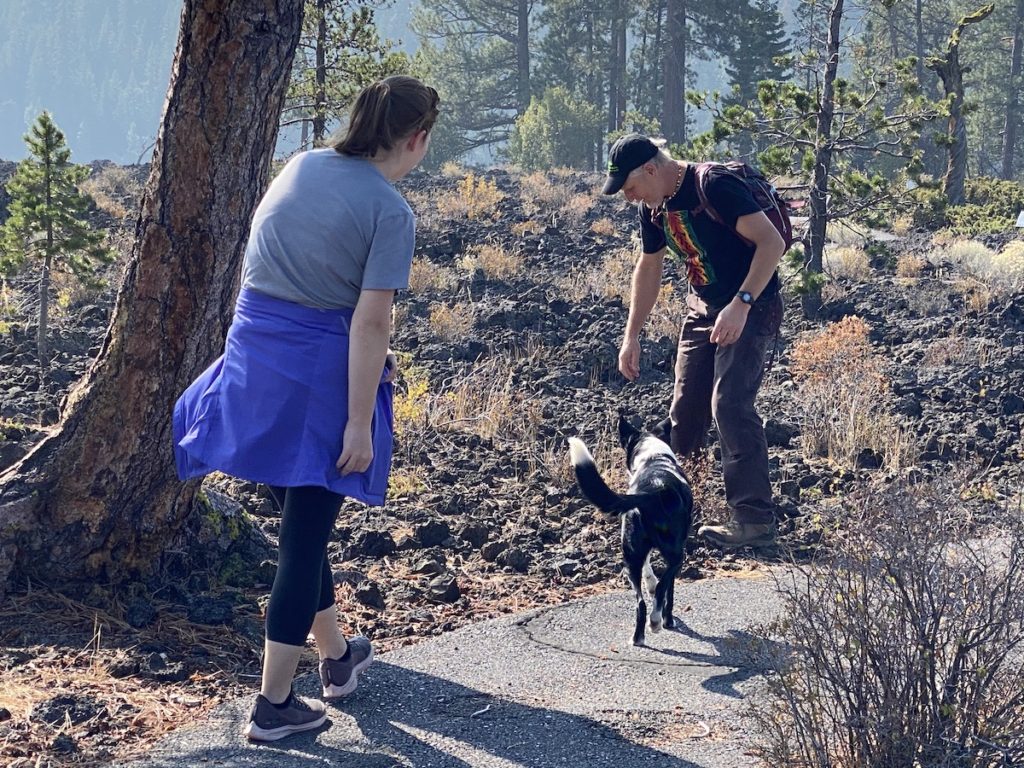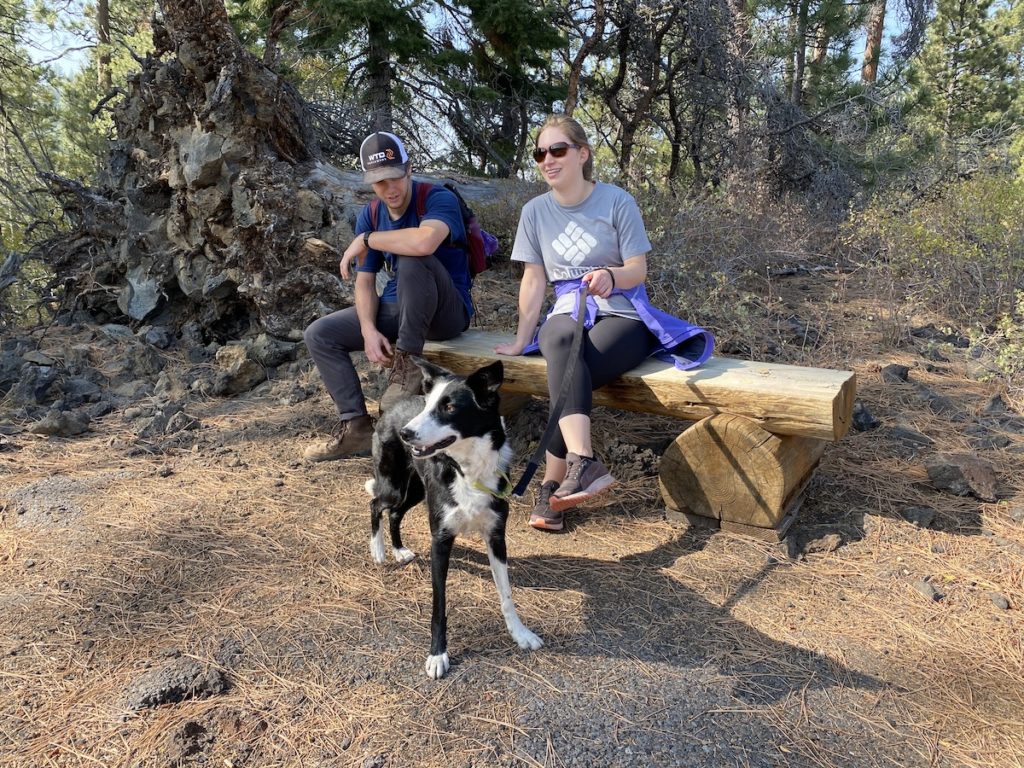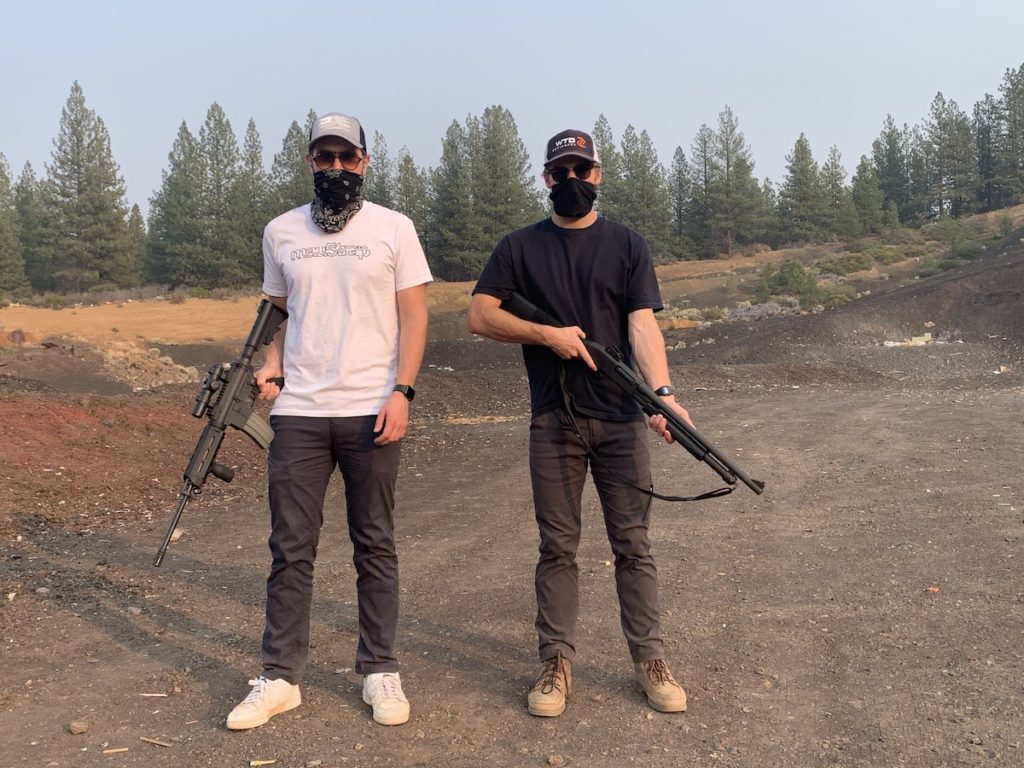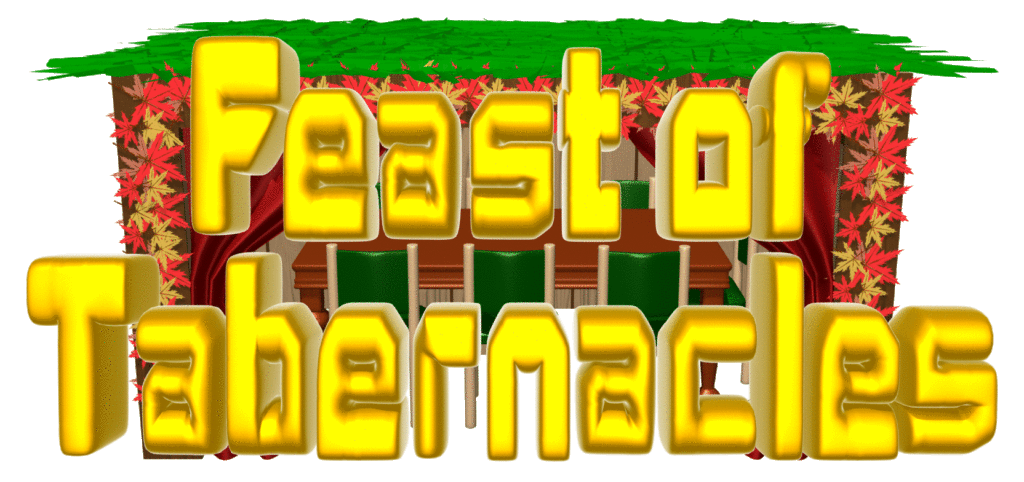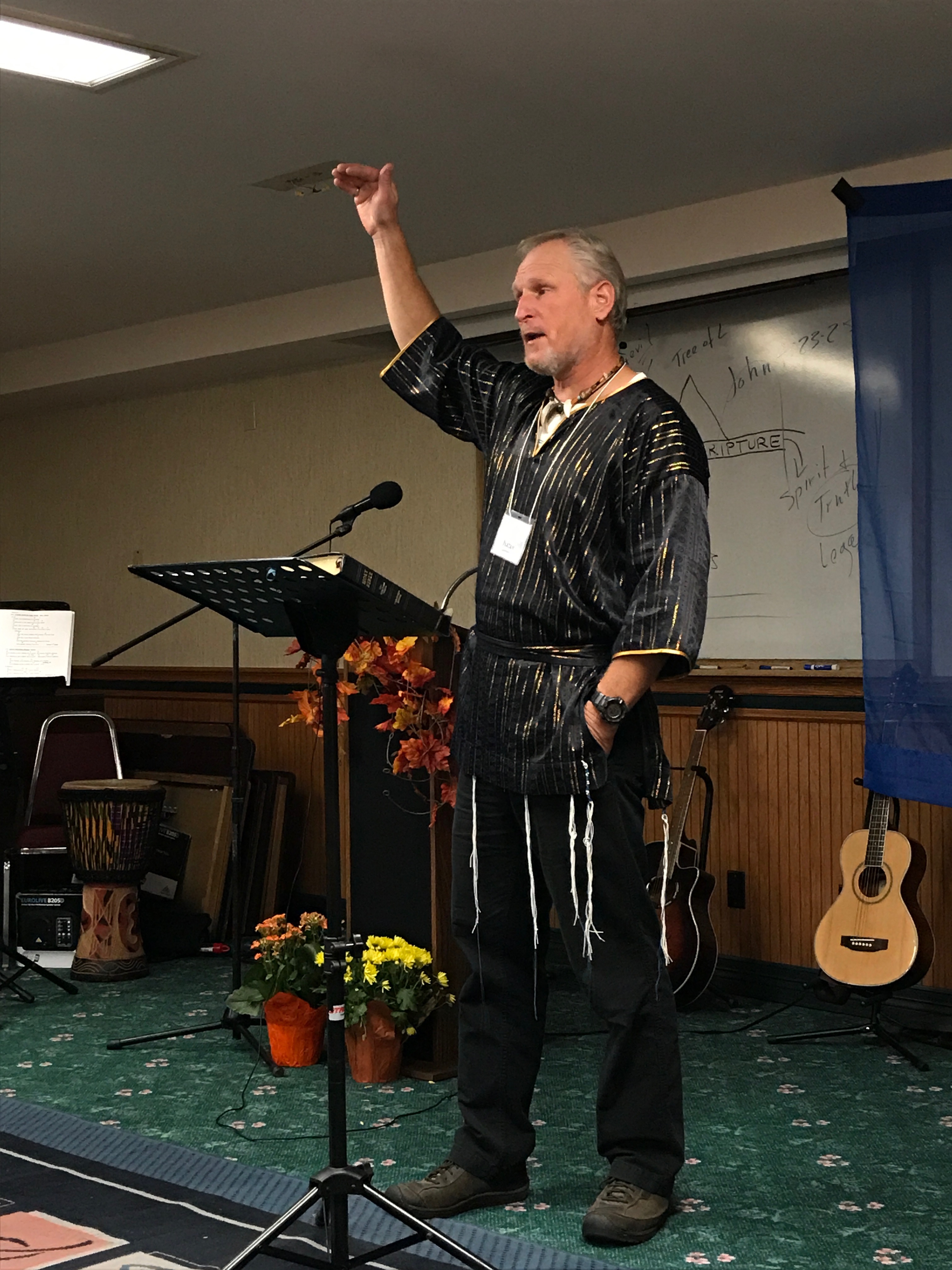
Hello everyone. Hope you’re having a great Sukkot wherever you may be.
My first Sukkot was in 1960, and I’ve been privileged to celebrate Sukkots in various places in the U.S., in Canada and in France. I’ve been apart of Sukkot gatherings with thousands of attendees, and in many with only small groups of hundreds, tens or just my family as is the case this year.
For our family and since I was a little child, the Feast of Tabernacles has always been the highpoint of our year. And it well should be because of what this biblical feast represents in Bible prophecy—a coming time called the Millennium when Yeshua has returned, and has destroyed the New World Order which the Bible refers to as Mystery Babylon the Great with all of its Satan-worshiping and Elohim-hating cast of character. During this time, which some forward-thinking people have referred to as “the world tomorrow”, Yeshua will establish his world-ruling kingdom and rule with his resurrected and glorified king and priest saints teaching the physical humans on this earth the ways and Truth of YHVH Elohim. At this time, Satan will have been bound and placed in the abyss for 1000 years and the world will be at peace as the glory of YHVH covers the earth as the waters cover the sea. It is this paradisiacal time that Sukkot prophetically portrays.
Each year at Sukkot, traditionally my family and I have vacated the city where we live (our “Babylon”) for some beautiful and idyllic place on earth where we can enjoy a small foretaste of Yeshua’s millennial kingdom. This is also why we colloquial refer to Sukkot simply as “the Feast,” for it is a time to rejoice in YHVH Elohim and the blessing he has lovingly and graciously bestowed on us during the past year. Sukkot also represents and points to the marriage feast of the Lamb of Elohim.
In preparation for this “vacation,” we save our feast tithe (or a biblically mandated “vacation fund”) as Scripture commands to help finance our time “away from it all.” During this time, we follow Scripture and use our money to bless others, and to buy whatever our hearts desire and to feast joyfully including with “wine and strong drink.” As we read,
You shall truly tithe all the increase of your grain that the field produces year by year. And you shall eat before the LORD your God, in the place where He chooses to make His name abide, the tithe of your grain and your new wine and your oil, of the firstborn of your herds and your flocks, that you may learn to fear the LORD your God always. But if the journey is too long for you, so that you are not able to carry the tithe, or if the place where the LORD your God chooses to put His name is too far from you, when the LORD your God has blessed you, then you shall exchange it for money, take the money in your hand, and go to the place which the LORD your God chooses. And you shall spend that money for whatever your heart desires: for oxen or sheep, for wine or similar drink, for whatever your heart desires; you shall eat there before the LORD your God, and you shall rejoice, you and your household. You shall truly tithe all the increase of your grain that the field produces year by year. And you shall eat before the LORD your God, in the place where He chooses to make His name abide, the tithe of your grain and your new wine and your oil, of the firstborn of your herds and your flocks, that you may learn to fear the LORD your God always. But if the journey is too long for you, so that you are not able to carry the tithe, or if the place where the LORD your God chooses to put His name is too far from you, when the LORD your God has blessed you, then you shall exchange it for money, take the money in your hand, and go to the place which the LORD your God chooses. And you shall spend that money for whatever your heart desires: for oxen or sheep, for wine or similar drink, for whatever your heart desires; you shall eat there before the LORD your God, and you shall rejoice, you and your household. You shall not forsake the Levite who is within your gates, for he has no part nor inheritance with you. (Deuteronomy 14:23–27)
Now some more Hebraic-minded saints declare that it’s impossible to keep the biblical feasts including Sukkot exactly how the Torah commands, and so they take the minimalist approach to scriptural obedience and use this as a justification for not doing the feasts at all. Over the years I have directly confronted this mindset and shown from Scripture how YHVH favors and desires a heart that is inclined to serve him “the best we can” regardless of our location or circumstances. Instead of finding reasons and excuses why we can’t obey him by keeping his feasts, I prefer to look for every reason why we can obey him. This shows him that our hearts are inclined toward obedience and we are endeavoring to love him in so doing. If we fall short in our obedience, his grace covers us. This is a better approach and heart and mind orientation than that of looking for any excuse not to obey him. And truthfully, YHVH has blessed our family immensely both physically and spiritually as he have endeavored to obey him the best we can as imperfect as it may be.
So some of you may be wondering what we do during Sukkot. For the 18 years Sandi and I pastored a local congregation, we sponsored regional Sukkot gatherings where dozens up to a couple of hundred feast-goers came and celebrated. During this time, we scheduled daily meetings, teachings, praise and worship gatherings, family events and activities, group meals and much more. Needless to say, this kept Sandi and I busy organizing, setting up, tearing down, and overseeing and leading. It has been a couple of years since we “retired” from that, and after we did, it all died since no one was willing pick up that mantle and carry on that work. It was a lot of hard work that few were willing to help us with. Since then, because we have no congregation or group to meet with, we simply gather together as a family, which is our own personal tribe where I am the “patriarch.” During Sukkot, on the high holy day Shabbats, I lead my family in prayer, Bible study and music as we endeavor to rest and keep the sanctity of the day. During the rest of the week, we do our best to keep our hearts and minds on the meaning of Sukkot while, at the same time, building family relationships by engaging in fun activities.
So why am I sharing all of this with you? Simply for this reason. Perhaps our example of how we celebrate Sukkot will inspire you and yours to do the same and to find the blessing therein even as we have. We have found that whenever we obey YHVH, there is always a blessing to be found including temporally vacating spiritual Babylon, meeting with Elohim at his appointed times, building relationships with family and friends, and inspiring ourselves to look upwards toward him and toward a future better world that is coming soon where Yeshua the Messiah will be the King of kings.
HalleluYah! Maranatha!! Yeshua come quickly. The grace of our Master Yeshua the Messiah be with you all. Amein

